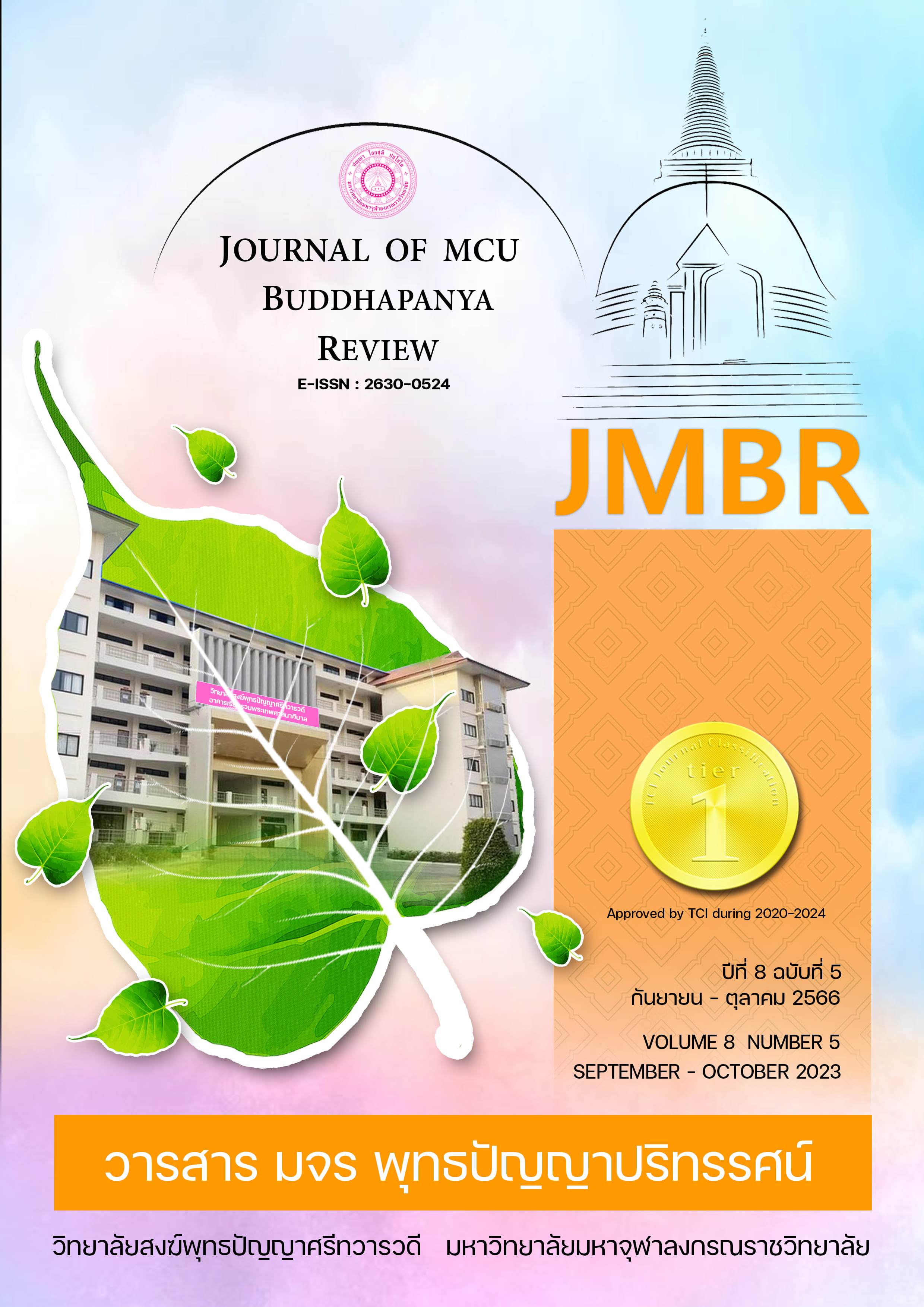การเสริมสร้างพลังอำนาจเพื่อส่งเสริมคุณภาพชีวิตผู้สูงอายุในโรงเรียนผู้สูงอายุ ของจังหวัดนครปฐม
คำสำคัญ:
การเสริมพลัง, โรงเรียนผู้สูงอายุ, คุณภาพชีวิตบทคัดย่อ
บทความวิจัยนี้มีวัตถุประสงค์เพื่อศึกษาข้อมูลพื้นฐานและสภาพการเสริมสร้างพลังอำนาจสำหรับการส่งเสริมคุณภาพชีวิตผู้สูงอายุ พัฒนารูปแบบการเสริมสร้างพลังอำนาจเพื่อส่งเสริมคุณภาพชีวิตผู้สูงอายุและ เพื่อทดลองใช้รูปแบบการเสริมสร้างพลังอำนาจเพื่อส่งเสริมคุณภาพชีวิตผู้สูงอายุในโรงเรียนผู้สูงอายุของจังหวัดนครปฐม 4) เพื่อประเมินและปรับปรุงรูปแบบการเสริมสร้างพลังอำนาจเพื่อส่งเสริมคุณภาพชีวิตผู้สูงอายุในโรงเรียนผู้สูงอายุของจังหวัดนครปฐม เป็นการวิจัยและพัฒนา ได้ศึกษาแนวคิดเกี่ยวกับผู้สูงอายุ แนวคิดการเสริมสร้างพลังอำนาจ แนวคิดคุณภาพชีวิต และแนวคิดการสร้างเครือข่าย กลุ่มตัวอย่างเชิงปริมาณ ได้แก่ ผู้สูงอายุ จำนวน 186 คน เชิงคุณภาพ ได้แก่ ผู้สูงอายุในโรงเรียนผู้สูงอายุ 7 โรงเรียน และการสนทนากลุ่ม จำนวน 35 คน ใช้วิธีคัดเลือกแบบเจาะจง เครื่องมือที่ใช้ในการวิจัยมี 3 ชนิด คือ แบบสอบถาม แบบสัมภาษณ์ และแบบสนทนากลุ่ม วิเคราะห์ข้อมูลเชิงปริมาณใช้ ค่าร้อยละ ค่าเฉลี่ยและส่วนเบี่ยงเบนมาตรฐาน เชิงคุณภาพ ใช้วิเคราะห์เนื้อหาแล้วเขียนบรรยายเชิงพรรณนา
ผลการวิจัยพบว่า 1) ค่าเฉลี่ยและส่วนเบี่ยงเบนมาตรฐานของผู้ตอบแบบสอบถามโดยรวมอยู่ในระดับมากที่สุด 2) การพัฒนารูปแบบ ได้รูปแบบมีชื่อเรียกว่า “KENG Model” มีองค์ประกอบ ได้แก่ Knowledge, Elderly School, Network และ Good 3) การทดลองใช้รูปแบบการเสริมสร้างพลังอำนาจเพื่อส่งเสริมคุณภาพชีวิตผู้สูงอายุในโรงเรียนผู้สูงอายุ พบว่า ผู้สูงอายุที่เข้ารับการอบรมมีความรู้หลังการอบรมสูงกว่าก่อนการอบรมอย่างมีนัยสำคัญทางสถิติที่ระดับ .05 4) ผลการประเมินปรับปรุงรูปแบบ พบว่า ความพึงพอใจที่มีต่อรูปแบบในภาพรวมอยู่ในระดับมาก ผู้เชี่ยวชาญเห็นด้วยกับรูปแบบ สำหรับองค์ความรู้จากงานวิจัยนี้ได้รูปแบบการเสริมพลังอำนาจเรียกว่า “KENG Model” เป็นประโยชน์ต่อการพัฒนาต่อยอดให้กับโรงเรียนผู้สูงอายุต่อไป
เอกสารอ้างอิง
Chompoonut Phromphak. (2013). Aging society in Thailand. Office of Academic Affairs, Secretariat of the Senate.
Chonlakon Sirawatthana. (2013). Self-acceptance. family relationship community involvement with the quality of life of the elderly in the Din Daeng Community Housing Bangkok. Journal of Social Sciences and Humanities 16, (March 2017): 80–94.
Department of Elderly Affairs. (2016). Situation of the Thai Elderly, 2014. Accessed November 5th. Accessed from https://www.dop.go.th/main/knowledge
Gibson, J. M. (1991). “A Concept Analysis of Empowerment.” Journal of Advanced Nursing 16 (March): 354-361.
Ministry of Social Development and Human Security. (2010). The Elderly Act B.E. 2003. Print No. 7. MCOT: Thepphenwanis Printing Factory.
Napaporn Havanon. (2009). The new direction of living development for the elderly in Thai society. Bangkok: Faculty of Architecture Rajamangala University of Technology Thanyaburi.
Office of the Health Promotion Fund. (2015). Happy Elderly with Simple Principles 10 A.. Accessed January 10. Accessed from http://www.thaihealth.or.th/
Puangnarin Khampuk. (2015). “Opinions of those involved in the establishment of a school for the elderly. Hua Ng Sub-district, Phan District Chiang Rai Province.” Master of Public Administration Thesis Faculty of Social Sciences Chiang Rai Rajabhat University.
Rodwell, C. M. (1996). “An Analysis of the Concept of Empowerment.” Journal of Advanced Nursing. 23 (February): 305-313.
Ritthichai Kaemnak et al. (2016). A Model of Participation in Health Promotion for the Elderly of Wat Hua Fai Elderly School, San Klang Sub-district, Phan District, Chiang Rai Province. Journal of Social Sciences and Research 11(33(2)), 47-61.
Sriruen Kaewkangwan. (2010). Developmental Psychology of Life at All Ages, Volume 1. Print No. 9. Bangkok: Thammasat University.
Sirilak Ruenwong. (2014). “Factors Influencing the Quality of Life Levels of the Elderly in the Elderly School, Hua Ngum Subdistrict, Phan District, Chiang Rai Province.” Independent Study. Master of Public Administration, School of Arts Mae Fah Luang University.
Thaweesak Laphukhiao (2004). “Getting care from the families of the elderly in Nong Hin Sub-District Municipality. Nong Hin District, Loei Province.” Master of Arts Thesis in Social Sciences for Development. graduate school Loei Rajabhat University
Thipawan Suthanon. (2013). “Applying Buddhist Dharma Principles for Happy Living of the Elderly.” Master of Buddhist Thesis. Buddhism graduate school Mahachulalongkornrajavidyalaya University.
Ubonrat Peng Sathit. (2003). Developmental Psychology. Bangkok: Ramkhamhaeng University.
Wilaiporn Khamwong et al. (2011). Factors related to quality of life of the elderly. Journal of Health Science Research 5(2), 32-40.
World Health Organization (WHO). (2002). Community-based rehabilitation and the health care referral services: a guide for program managers. Geneva, Switzerland.
ดาวน์โหลด
เผยแพร่แล้ว
รูปแบบการอ้างอิง
ฉบับ
ประเภทบทความ
สัญญาอนุญาต
ลิขสิทธิ์ (c) 2023 วารสาร มจร พุทธปัญญาปริทรรศน์

อนุญาตภายใต้เงื่อนไข Creative Commons Attribution-NonCommercial-NoDerivatives 4.0 International License.



